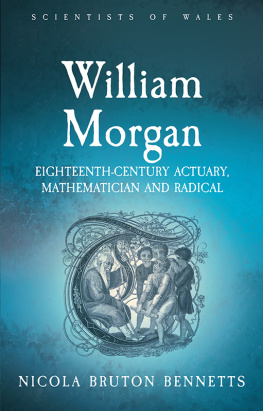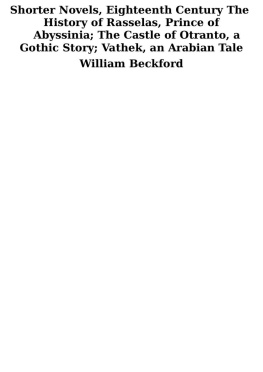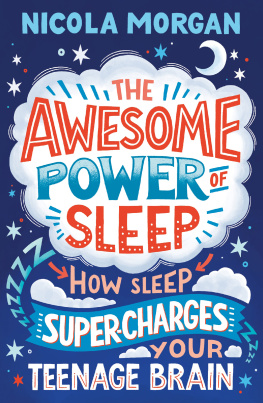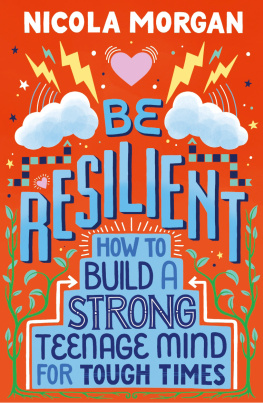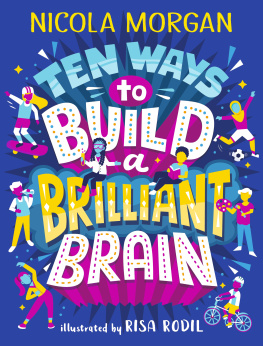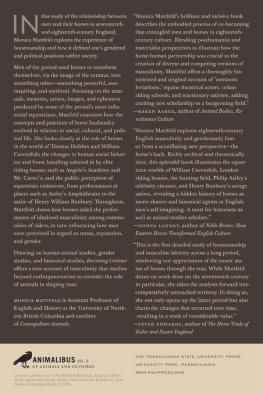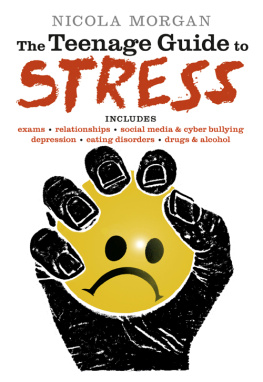SCIENTISTS OF WALES
William Morgan
SCIENTISTS OF WALES
Series Editor
Gareth Ffowc Roberts
Bangor University
Editorial Panel
John V. Tucker
Swansea University
Iwan Rhys Morus
Aberystwyth University
SCIENTISTS OF WALES
William Morgan
EIGHTEENTH-CENTURY ACTUARY, MATHEMATICIAN AND RADICAL
NICOLA BRUTON BENNETTS
Nicola Bruton Bennetts, 2020
All rights reserved. No part of this book may be reproduced in any material form (including photocopying or storing it in any medium by electronic means and whether or not transiently or incidentally to some other use of this publication) without the written permission of the copyright owner except in accordance with the provisions of the Copyright, Designs and Patents Act 1988. Applications for the copyright owners written permission to reproduce any part of this publication should be addressed to the University of Wales Press, University Registry, King Edward VII Avenue, Cardiff CF10 3NS.
www.uwp.co.uk
British Library Cataloguing-in-Publication Data
A catalogue record for this book is available from the British Library.
ISBN 978-1-78683-618-2
eISBN 978-1-78683-620-5
The right of Nicola Bruton Bennetts to be identified as author of this work has been asserted in accordance with sections 77, 78 and 79 of the Copyright, Designs and Patents Act 1988.
The publisher acknowledges the financial support of the Books Council of Wales.
The publisher has no responsibility for the persistence or accuracy of URLs for any external or third-party internet websites referred to in this book, and does not guarantee that any content on such websites is, or will remain, accurate or appropriate.
Cover image: Feature of early nineteenth-century life assurancepolicy of the Society for Equitable Assurances,shown withpermission of the Institute and Faculty of Actuaries (RC 000243); all rights reserved.
In memory of my brother, Simon Bruton (19472019)
W ales has a long and important history of contributions to scientific and technological discovery and innovation stretching from the Middle Ages to the present day. From medieval scholars to contemporary scientists and engineers, Welsh individuals have been at the forefront of efforts to understand and control the world around us. For much of Welsh history, science has played a key role in Welsh culture: bards drew on scientific ideas in their poetry; renaissance gentlemen devoted themselves to natural history; the leaders of early Welsh Methodism filled their hymns with scientific references. During the nineteenth century, scientific societies flourished and Wales was transformed by engineering and technology. In the twentieth century the work of Welsh scientists continued to influence developments in their fields.
Much of this exciting and vibrant Welsh scientific history has now disappeared from historical memory. The aim of the Scientists of Wales series is to resurrect the role of science and technology in Welsh history. Its volumes trace the careers and achievements of Welsh investigators, setting their work within their cultural contexts. They demonstrate how scientists and engineers have contributed to the making of modern Wales as well as showing the ways in which Wales has played a crucial role in the emergence of modern science and engineering.
RHAGAIR GOLYGYDD Y GYFRES
O r Oesoedd Canol hyd heddiw, mae gan Gymru hanes hir a phwysig o gyfrannu at ddarganfyddiadau a menter gwyddonol a thechnolegol. Or ysgolheigion cynharaf i wyddonwyr a pheirianwyr cyfoes, mae Cymry wedi bod yn flaenllaw yn yr ymdrech i ddeall a rheolir byd on cwmpas. Mae gwyddoniaeth wedi chwarae rl allweddol o fewn diwylliant Cymreig am ran helaeth o hanes Cymru: arferair beirdd llys dynnu ar syniadau gwyddonol yn eu barddoniaeth; roedd gan wr y Dadeni ddiddordeb brwd yn y gwyddorau naturiol; ac roedd emynau arweinwyr cynnar Methodistiaeth Gymreig yn llawn cyfeiriadau gwyddonol. Blodeuodd cymdeithasau gwyddonol yn ystod y bedwaredd ganrif ar bymtheg, a thrawsffurfiwyd Cymru gan beirianneg a thechnoleg. Ac, yn ogystal, bu gwyddonwyr Cymreig yn ddylanwadol mewn sawl maes gwyddonol a thechnolegol yn yr ugeinfed ganrif.
Mae llawer or hanes gwyddonol Cymreig cyffrous yma wedi hen ddiflannu. Amcan cyfres Gwyddonwyr Cymru yw i danlinellu cyfraniad gwyddoniaeth a thechnoleg yn hanes Cymru, i chyfrolaun olrhain gyrfaoedd a champau gwyddonwyr Cymreig gan osod eu gwaith yn ei gyd-destun diwylliannol. Trwy ddangos sut y cyfrannodd gwyddonwyr a pheirianwyr at greur Gymru fodern, dadlennir hefyd sut y mae Cymru wedi chwarae rhan hanfodol yn natblygiad gwyddoniaeth a pheirianneg fodern.
T his book began with letters from the past which introduced me to distant members of my family. I am forever grateful to John Morgan and the late David Perry, whose scholarly genealogical research has not only enabled me to identify all the letter writers and place them in context, but has also provided nuggets of family history which have fleshed out the bare facts of the family tree. Further detail has been provided by Paul Frame, initially through his excellent biography of Williams uncle, Richard Price, and then through his generosity in sharing his research material. His encouragement has been wonderfully sustaining, and his creation of the Richard Price Society has introduced me to fellow enthusiasts whose knowledge and support have been invaluable. I send Paul and all the members my very warm thanks.
The archive of the Equitable Assurance Society, now housed at the Institute of Actuaries at Staple Inn, is a rich seam of material relating to Williams fifty-six years as an actuary. David Raymont, the librarian at the Institute, has spent many hours patiently guiding me through their records, minutes of meetings, and other documents, ever tactful about my slow grasp of actuarial procedures. As well as a catalogue of the archive material, he provided me with details of eighteenth-century policies and policyholders, giving me a valuable insight into the mores of the time. He also arranged expert help on actuarial science by giving me an introduction to David Forfar, with whom I have had an extended tutorial by means of an exchange of emails. I am indebted to David Forfar for his lucid explanations of the science of big numbers and other concepts, and for his historical accuracy concerning the development of actuarial science.
My very limited science education meant that Williams electrical experiments presented me, not to mention those who undertook to coach me, with an enormous challenge. I am immensely grateful to Peter Midgley who gave me a crash course in basic electricity, and to Tony Carrington who gave me step-by-step teaching to explain X-rays and, in particular, Williams experiment. John Tucker has continued the tuition and much, much more, being generous with his time and endlessly patient. I could not have completed this book without his help.
Williams varied interests took me to a wide range of places for research. I had help and encouragement everywhere I went and I send my thanks to the very many people who gave me their time and the benefit of their expert knowledge. Janet Payne checked all the apprenticeship records at the Worshipful Society of Apothecaries as well as giving me a tour of the impressive Apothecaries Hall. The librarians at the Wellcome Trust helped me to fill in the details of Williams life as a medical student. At the Royal Society I was shown Williams original X-ray paper alongside the contemporary letters and papers which gave a fuller picture of the scientific ideas of the time.


